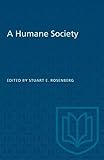A Humane Society / ed. by Stuart E. Rosenberg.
Material type: TextSeries: HeritagePublisher: Toronto : University of Toronto Press, [1962]Copyright date: ©1962Description: 1 online resource (188 p.)Content type:
TextSeries: HeritagePublisher: Toronto : University of Toronto Press, [1962]Copyright date: ©1962Description: 1 online resource (188 p.)Content type: - 9781487573317
- 9781487584436
- 170 22
- BJ319 .R6eb
- online - DeGruyter
| Item type | Current library | Call number | URL | Status | Notes | Barcode | |
|---|---|---|---|---|---|---|---|
 eBook
eBook
|
Biblioteca "Angelicum" Pont. Univ. S.Tommaso d'Aquino Nuvola online | online - DeGruyter (Browse shelf(Opens below)) | Online access | Not for loan (Accesso limitato) | Accesso per gli utenti autorizzati / Access for authorized users | (dgr)9781487584436 |
restricted access online access with authorization star
http://purl.org/coar/access_right/c_16ec
The First Institute of Ethics arranged by Beth Tzedec Congregation, Toronto, brought together a number of important people in various fields of public life to discuss problems of ethnics in crucial areas of tension and concern today. Their general theme might be taken as, "What is the way which man ought to choose for himself?" This ancient question has never been more urgent than it is today amid the bewilderment and tension of modern men as they try to see their way through the pressures and anxieties of our times. Wherein lies the relevance for individual conduct today of the moral precepts of the old religious faiths? How can individuals learn to exercise freedom of choice and responsibility and decide what of ancestral wisdom is still valid in a world situation where not just their own small groups are threatened but the whole race? Is modern education to be concerned solely with matters of the intellect or should it deal also with matters of goodness and ethical conduct in an endeavour to help students use knowledge in the treatment of the great and difficult problems of life? Do we really believe in the unity of the human race and int he possibilities inherent in every human life, and what are the challenges of such a belief? What is involved in true tolerance of difference in faith, in colour, in customs and how can it be secured in the acts of private and business life? How should those who run for public office deal with the pressures upon them from special interest groups? What is the responsibility of mass media such as the broadcasting networks for the pursuit of truth? There are only some of the probing questions which are explored by a variety of the leaders of opinon contributing to this Institute of Ethics. The debate they encourage by these stimulating and frank contributions will be welcomed by those of all faiths and traditions interested in the quality of our society. "The reader of the various essays in the present volume will not find answers to moral problems of our time. But he will discover how thoughtful and good men are analysing them. This is not a manual, to take with one, so as to find one's way among the perplexities of our time. But it is a very good book to read again and again, to rouse oneself from complacency, to stimulate one's mind for concern with the greatest of the sciences, namely the Science of Life, and the greatest of all arts, namely, the Art of Life." From the Foreword by Dr. Louis Finkelstein, Chancellor of the Jewish Theological Seminary of America. The contributors are: SENATOR PAUL DOUGLAS of Illinois; BROCK CHISHOLM, former Director General, World Health Organization; MORDECAI W. JOHNSON, President Emeritus, Howard University, Washington, D.C.; ANDREW STEWART, Chairman, Board of Broadcast Governors; JOHN C. BENNETT, Dean of the Faculty, Union Theological Seminary, New York; BERNARD MANDELBAUM, Provost, Jewish Theological Seminary of America; SIMON GREENBERG, Vice-Chancellor, Jewish Theological Seminary of America; MURRAY G. ROSS, President of York University, Toronto; LOUIS FINE, Chairman of the Human Rights Commission of Ontario; THOMAS EBERLEE, Secretary of the Human Rights Commission of Ontario.
Mode of access: Internet via World Wide Web.
In English.
Description based on online resource; title from PDF title page (publisher's Web site, viewed 01. Nov 2023)


